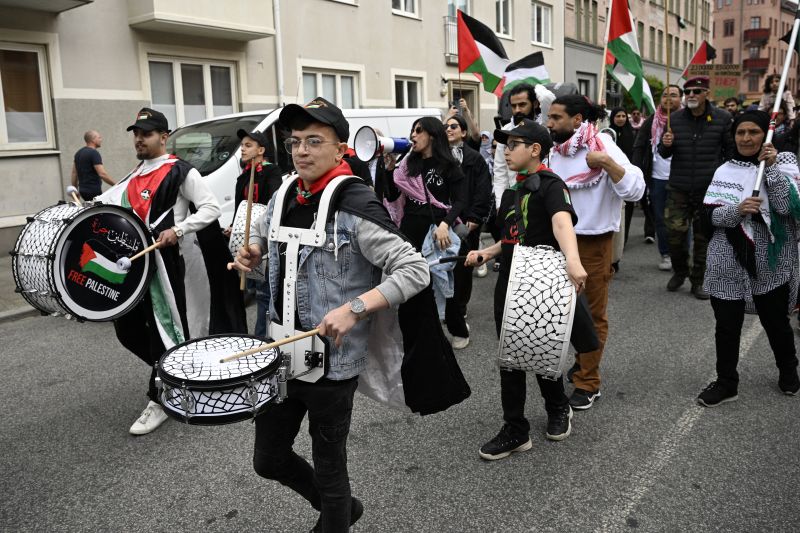The Eurovision Song Contest, the continent’s largest and most ceremonial musical event, finds itself surrounded by tension and controversy as it takes place in Tel Aviv, Israel, for the first time since 1999. With protesters gathering across Europe and some artists voicing their discomfort, Israel’s presence as the host nation has caused quite a stir and is poised to shape this year’s event into one of the most dramatic and politically charged in its illustrious 65-year history.
This tension stems from the various dialogues and political controversies that surround Israel as a nation. Several human rights organization have accused the nation of using the event as a smokescreen to cover its alleged violations of Palestinian rights. These sentiments have given rise to what is known as the Boycott, Divestment, and Sanctions (BDS) Movement. The movement, asking countries and participants to pull out of the contest and reject Israel as this year’s host, has garnered sizeable support that includes several high-profile celebrities and past Eurovision contestants.
However, the Eurovision contest is no stranger to controversy. Since its inception in 1956, the annual event has often been a backdrop for tense geopolitical situations, offering a stage where countries can express diplomacy or hostility, often through voting biases. Yet, even for an event known for its complicated politics, the controversy surrounding Israel’s hosting presents an unusually high level of tension.
Several artists participating in this year’s event have publicly expressed their discomfort and outright disapproval of Israel’s role as host. They argue that their participation could be construed as an endorsement of Israel’s policies, thereby potentially tainting their artistic integrity. Despite this internal conflict, a majority of the contestants have decided to perform, arguing that Eurovision is an event built on unity through music, hence its historical motto ‘building bridges’, and maintaining that it should not be overshadowed by political issues.
Israel won the rights to host the event this year following the victory of their contestant, Netta, in the 2018 contest in Lisbon with her song Toy. Since then, with the ongoing Israel-Palestine conflict, the country has walked a fine line in preparing for the event. There was a significant focus on providing large scale security operations, ensuring the safety of all participants and attendees.
Another significant source of friction lies in Eurovision’s ‘apolitical’ stance. Though Eurovision claims to be non-political, the competition’s history is riddled with instances of geopolitical tension spilling onto its stage. One such example is the 2016 competition held in Stockholm, where the Ukrainian contestant performed a politically charged song about the deportation of Crimean Tatars by the Soviet Union in 1944, despite Russia’s protestations.
Despite the tension and controversy surrounding this year’s event, the Eurovision Song Contest seems well-prepared to weather the storm. With a proven track record of dealing with geopolitical tension and demonstrating resilience over the years, the event is expected to go on with gusto.
Artists and participating nations will surely feel the pressure as they take the stage in Tel Aviv, and viewers around the world will not merely be witnessing a musical event but also engaging in an event with political undertones. Eurovision’s ability to balance its glamorous palette of musical competition with the underlying tension will undoubtedly earn it a significant place in its storied history. Whether it will be remembered as a contest of unity amid contention or a hotbed of controversy remains to be seen.




